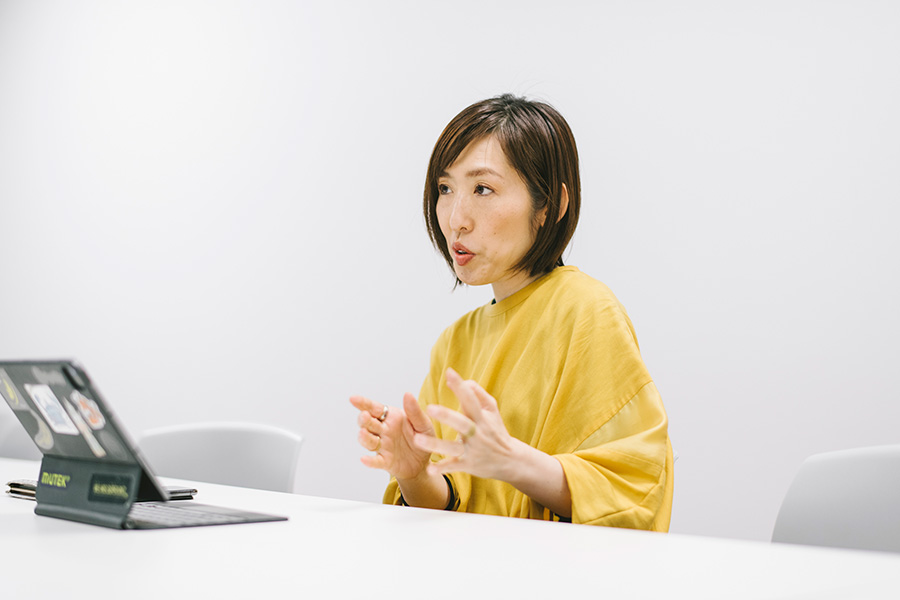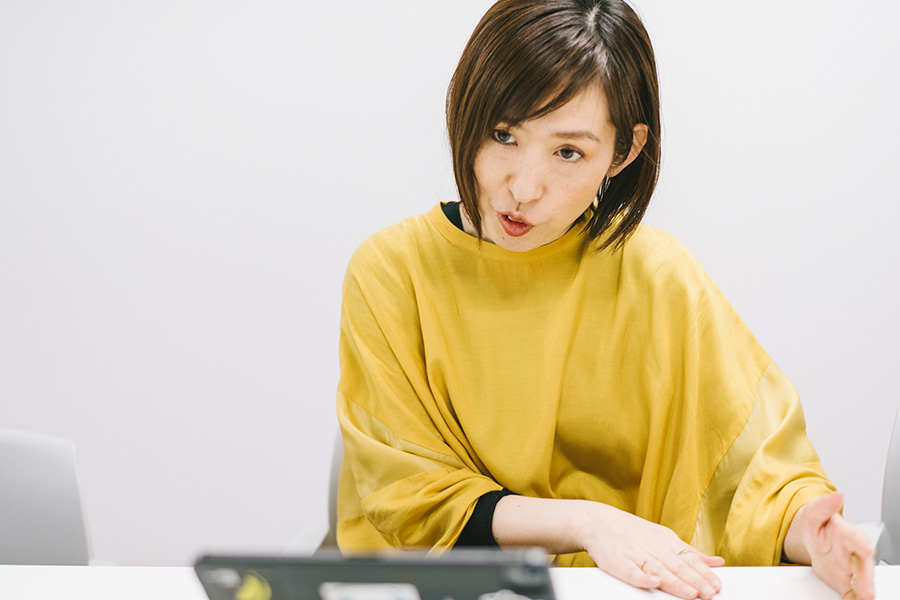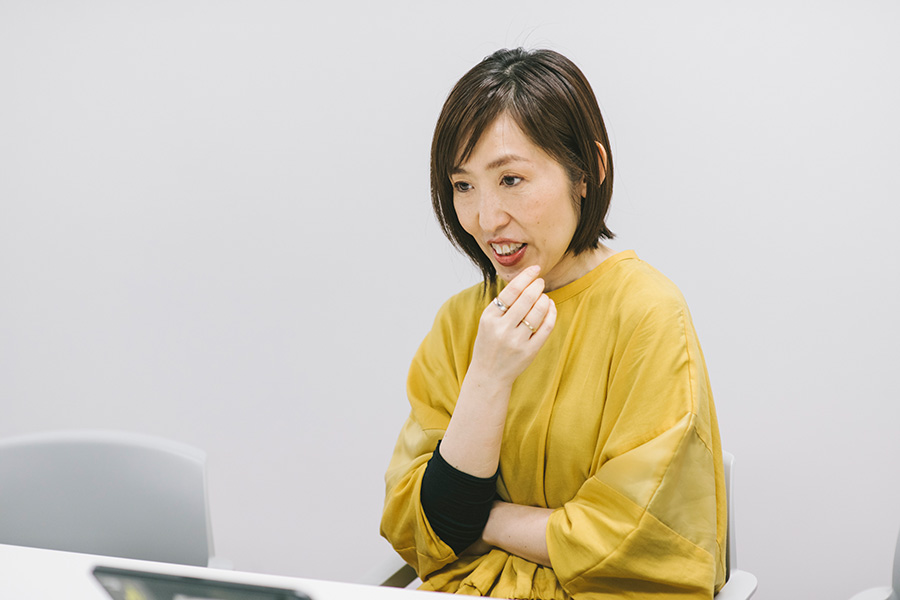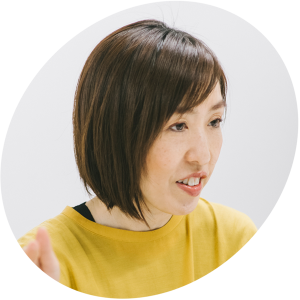民間企業から渋谷区へとキャリアを移し活躍する宮本さん。行政の視点に立ってみての気付きや、想像したよりも“クリエイティブ”だったという渋谷区の仕事について、また、今年も開催が予定されているSOCIAL INNOVATION WEEK(SIW)に寄せる期待について、お話を伺いました。

想像以上にクリエイティブ
“もっと面白い公共”をつくる
——宮本さんが渋谷区に入られたのはいつ頃ですか?
2年半ほど前です。それまではADKという広告会社で外資系の企業を担当していました。でも20年以上同じ会社で社会と関わってきたので、違う視点で世の中を見たいと思ったんです。行政なら、180度目線が変わりそうだなという気がしたんですね。
——実際に入ってみてどんな違いがありましたか?
広告代理店での仕事は、クライアントがいて、その先にお客さんがいて、そこに対して何が提供できるかというふうに一方向に向かって考えていくものでした。公共の仕事では、ステークホルダーや目線が複数に渡っているというのが大きな違いだと思います。たとえば区民の方々や議員さんや企業やNPOなど、いろいろな立場の方々がそれぞれの目線で関わられているので、その調整はより複雑ですし正解がない、というところが難易度が高く、またやりがいのある仕事だと感じています。
どうしても区役所というと窓口業務のイメージがあって、すごく細かい作業が多いのかなと思っていたんですが、実際に入ってみると、とてもクリエイティブな職場だということに気が付きました。その最たるものが街づくりで、10年後から100年後、それ以上のことを考えながらプランを練って、ビジョンを掲げて…と、スケールが大きいですよね。それを、さまざまな専門職の方々やステークホルダーを巻き込みながらつくっていくのは、とても面白い仕事だと思います。

また同時に、私は民間企業から区役所に入りましたが、人材の流動性というのも重要なのだなと改めて思いました。公務員は公務員、民間人は民間人、主婦は主婦、というように役割をひとつしか持たないイメージではなくて、副業や転職で柔軟に立場を選ぶができれば、もっと面白い公共というものをつくっていけるんじゃないかと思っています。
——そんな中で、宮本さんが主に取り組んでいるのはどんなことですか?
私は渋谷区の産業観光文化部というところで、産業振興や文化振興、スタートアップ支援などを担当する部署で部長を務めています。産業観光課では、ハチペイというデジタル地域通貨プロジェクトで、事業者や商店街などのサポートをしたり、渋谷区観光協会さんと一緒に、観光資源開発などを行っています。
また、文化振興課というところでは、美術館や博物館などの文化施設のコーディネートや、区内の文化経営団体さんのサポートなどを行なっています。
そしてもうひとつ、スタートアップ支援事業として、海外から日本で起業したい人のための環境整備や、実際に起業してスケールするサポートまでを行なったりと、職務は幅広いです。
——そんな幅広いお仕事に取り組むなかで、共通して大切にしていることはありますか?
どれも官民連携が重要な部署になるので、私も民間出身ということもあり、うまく民間の力を活かしてよりよい公共事業をつくっていければと思っています。
また、行政というとどうしても、今までやってきたことを大事にしていくようなイメージを持たれる方が多いと思いますが、もちろん今までやってきた事業に敬意を払いながら、さらに新しい社会に合った活動にしていくことを心がけています。ただ、それは自分だけでできることではありませんので、チームワークで、みんなの納得性を高めながらやっていくことを大切にしています。

立場の垣根を超えて意見を交わすSIWの面白み
——SOCIAL INNOVATION WEEK(以下、SIW)に関わっていただき始めたのは、渋谷区に入られてすぐの頃からですか。
そうですね、2020年のSIWからです。スタートアップ支援のコンソーシアム組織の発足の際にご一緒させていただきました。それから毎年何らかのかたちで関わっています。
先ほどお話ししたとおり、ひとつの組織の中で全て完結するのではなく、いろいろなステークホルダーの立場や視点を理解するのがとても重要なので、SIWのような場で持てる接点だったり、そこで得るあらたな知見にはとても価値があると思っています。SIWのパワーを活用して、官民連携のスタイルをいろいろとつくっていきたいです。
——過去のSIWを振り返って特に印象に残っているのはどんなことですか?
去年、2022年のSIWですね。文化振興の文脈のなかで、アートや音楽に関わるプロジェクトについてのトークセッションを3部構成で行ないました。
アートを取り巻く多様な立場の方々に登壇いただいて、もちろんそれぞれの意見があって、セッションの中でそれらが刺激的に交錯していくんですね。トークの最後に宇川直宏さん(DOMMUNE主宰/SIWフェロー)が、「いや、こういうのが渋谷だよね」とおっしゃったんです。「こうやってバチバチとトークしていいんだよ」と。
たとえば公共の立場とそうでない立場では、アートに対する目線も違って、それぞれの目線を知るというのも大切な気付きです。そのなかで何をどういうかたちで創発していくかというのがチャレンジなので、面白がってやっていくのが渋谷らしいよね、という考えに背中を押されました。
自分たちが公共の立場でアートや文化のプロジェクトを推し進めていくにあたって、アート界の方々からはどういうふうに見えるのか、一般視聴者やアートファンの方々からはどう見えるのか、というふうにいろいろな視点からボールを投げ込んでもらって、そこでの気付きをもとにプロジェクトの軌道修正をしていくことができる場として、やはりSIWは面白いなと感じました。

——異なる立場からの意見を交換しないと、ともすればずっと交わることがないかもしれないですし。
実際にはトークの現場をドキドキしながら見守っていましたが、とても有意義なことだと思いました。SIW全体がこうしてもっとハラハラドキドキするような場になっていったら、もっと面白くなると思います。
——今年もSIW2023が開催されますが、宮本さんとしてはどんなことに期待していますか?
この数年はコロナもあってオンラインのセッションがメインになっていたと思いますが、もう少しオフラインで交流するようなことができたらいいのかなと思います。それも登壇者と聴講者、という在り方ではなくて、同じグラウンドレベルで多様な人が平等にボールを投げ合えるような場づくりができると嬉しいですね。壇上から一方的にボールを投げるだけではもったいないなと思います。
——今年はまさに、ネットワーキングの機能をこれまでよりも活性化させていく予定になっています。それが、より広く立場を超えて交流できる場にできるといいですね。
そうですね。登壇する人としない人、みたいな分け方は嫌じゃないですか。できるだけフラットに、隔たりがないほうが渋谷らしいんじゃないかなと思います。
——ありがとうございます。
SOCIAL INNOVATION WEEK
https://social-innovation-week-shibuya.jp



